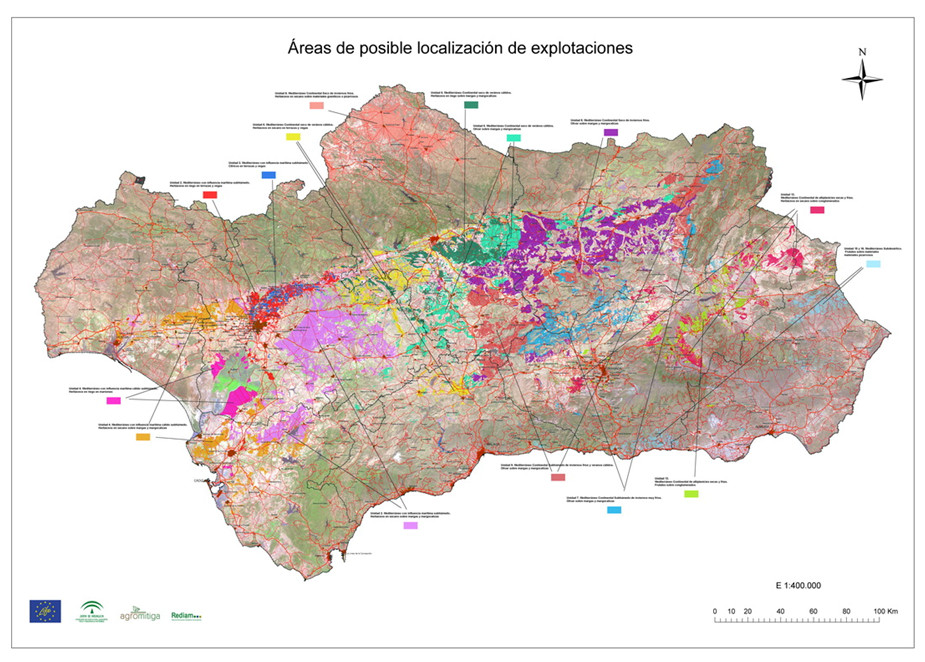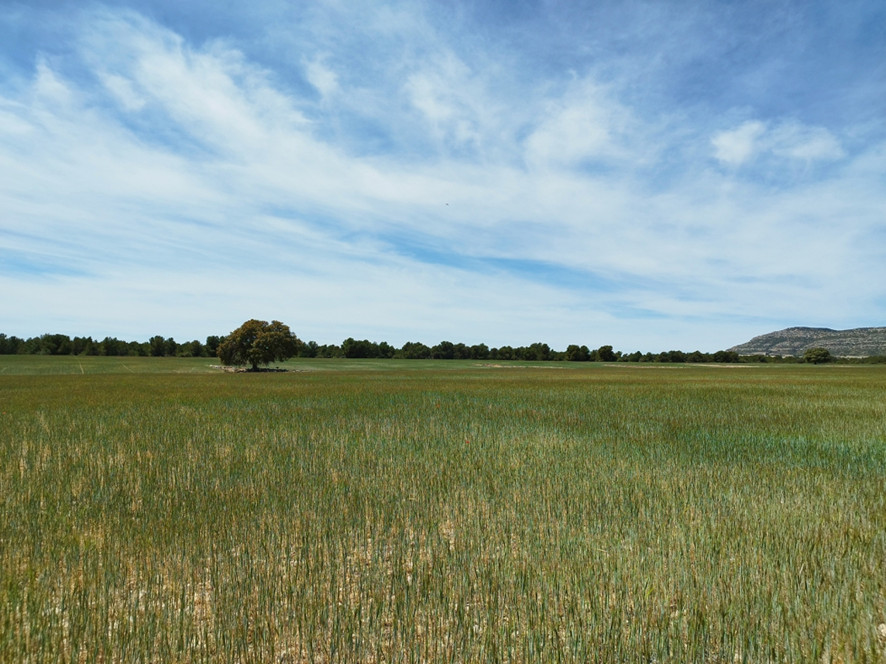The life Agromitiga project concludes the zoning study

Antonio Manuel Conde, from Jaen, part of the network of demonstration farms of the LIFE Agromitiga project, finalist in the “Young Farmer 2020” awards
2020-02-18
Monitoring carbon in the soil, central aspect of the life Agromitiga project
2020-02-26The life Agromitiga project concludes the zoning study
The organic carbon content in the soil depends on different factors, both external, relative to its geographical sublocation (mainly climate) and linked to its physical characteristics or its use. During the initial phase, the LIFE Agromitiga project has carried out an identification and sectorization of different action areas included in the project. The fundamental objective of this task is to carry out a territorial analysis that, taking into account the main factors that affect the soil carbon content, establishes different agroclimatic zones that allow establishing the most representative situations in the Andalusian region. Therefore, a network of farms will be formalized regionally in which the evolution of the carbon content will be monitored.
To divide representative areas into zones, the considered variables have been, fundamentally, the use of the soil, the climatology and the lithology. Therefore, information related to the main descriptive variables of the medium was collected regionally in digital format: climatic classifications, updated cartography of land uses and synthetic maps of lithological formations.

Through territorial analysis and class grouping, the spatial location of different layers and their representative surfaces has been established in order to establish the distribution and ideal number of monitoring plots for organic carbon content in the main regional agricultural uses and different types of management.
The zoning of the Andalusian territory proposed by the Ministry of Agriculture, Livestock, Fisheries and Sustainable Development of the Andalusian Government, and based on its phytoclimatic analysis, a network of 36 collaborating farms spread across the Andalusian region will be established.
The LIFE AGROMITIGA project (Development of climate change mitigation strategies through smart agriculture related to the use of carbon) which, coordinated by the Spanish Association on Conservation Agriculture - Living Soils (AEAC.SV), having as a participant ASAJA-Seville, aims to promote sustainable agricultural concepts and practices which can be applied locally and in Europe, through the development of tools and actions that enhance the soil's mitigating capacity as a carbon sink.
Source: ASAJA Sevilla
This post is also available in: Español (Spanish)




